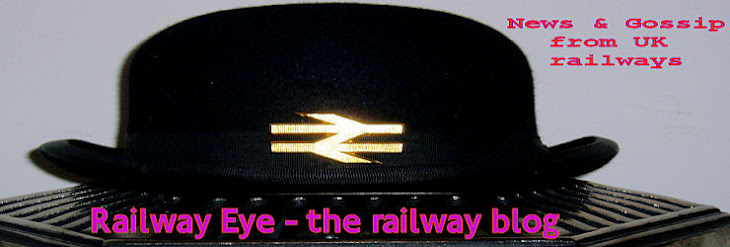An interesting Parliamentary Question from Blaydon MP David Anderson...
To ask the Minister of State, Department for Transport pursuant to the answer of 5 November 2009, Official Report, column 1103W on railways; franchises, which franchise operator received a payment from his Department in October 2006; and how much that payment was.
To which Chris Mole (Parliamentary Under-Secretary, Department for Transport; Ipswich, Labour) gave the following answer on the 10th November
The Department for Transport does not publish details on compensation payments made to individual train operating companies for net losses arising from industrial action on the grounds of commercial confidentiality.
Hmmm... perhaps Eye can help.
Readers of the 11th November edition of Rail Business Intelligence will have noted an interesting table on p4, based on information given by Moley himself to the House on the 4th November.
It reveals that National Express East Anglia received a payment from DafT of £3.4m in 2006/07.
As Cap and Collar for NXEA didn't kick in till 2008 it seems reasonable to assume that the £3.4m was indeed given as compensation for Industrial Action, as suggested by Mr Anderson's pointed question.
Happily things are much improved today - for train operators.
One of the perversities of Cap and Collar is that it encourages TOCs not to run trains.
Consider this win - win situation.
An operator, for the sake of arguament let's call it First Capital Connect, is a beneficiary of Cap and Collar
Under Cap and Collar DafT pays for 80% of revenue shortfall.
Were FuCC to suffer industrial action with a consequent loss of revenue DafT picks up 80% of the tab, meanwhile the TOC makes a net saving on staff and operating costs by not running trains.
So don't expect First to be in any hurry to resolve its current IR difficulties whilst a supine DafT continues to shell out the readies.
Truly the economics of the madhouse.
Hulleys’ Closure - My Thoughts
10 months ago





